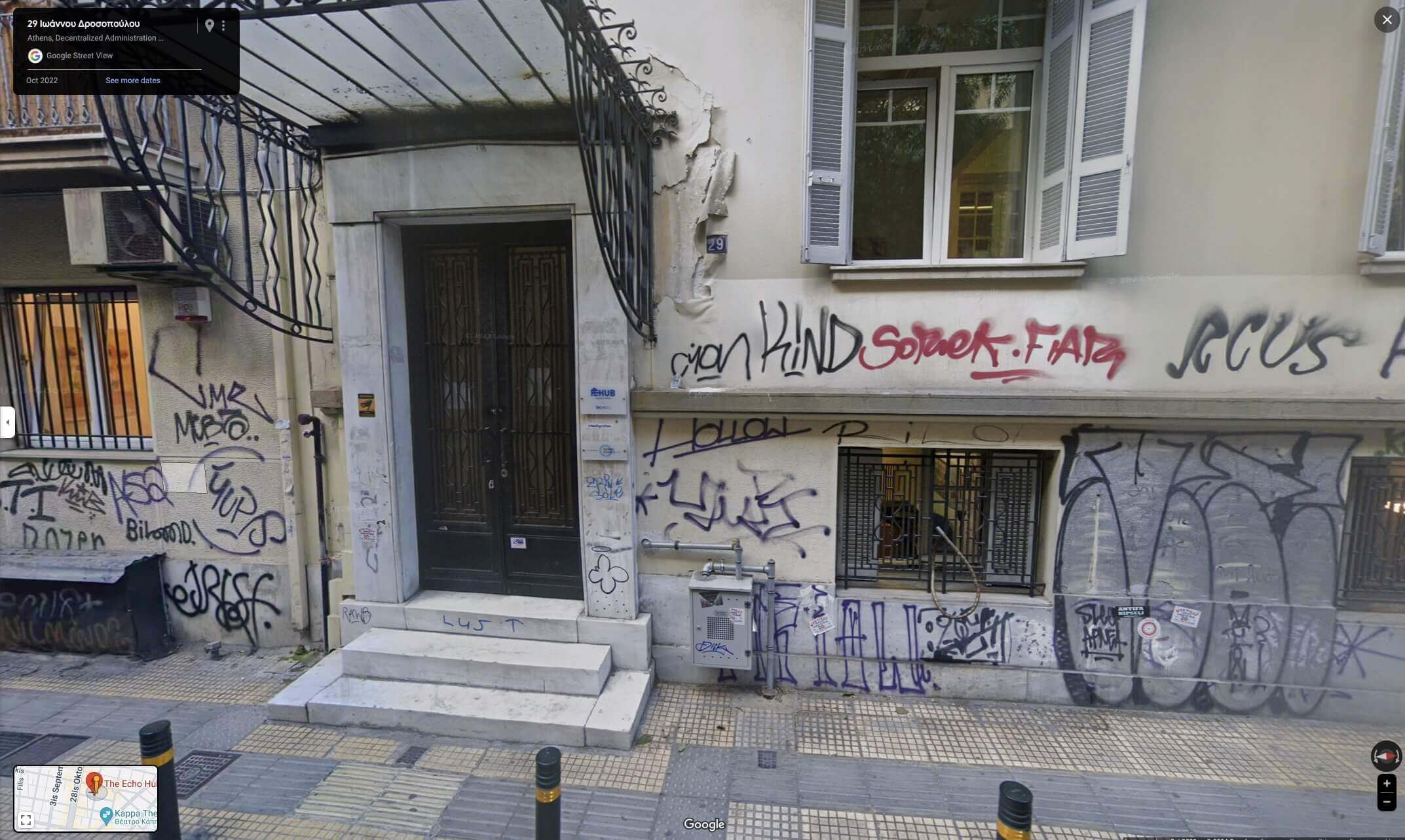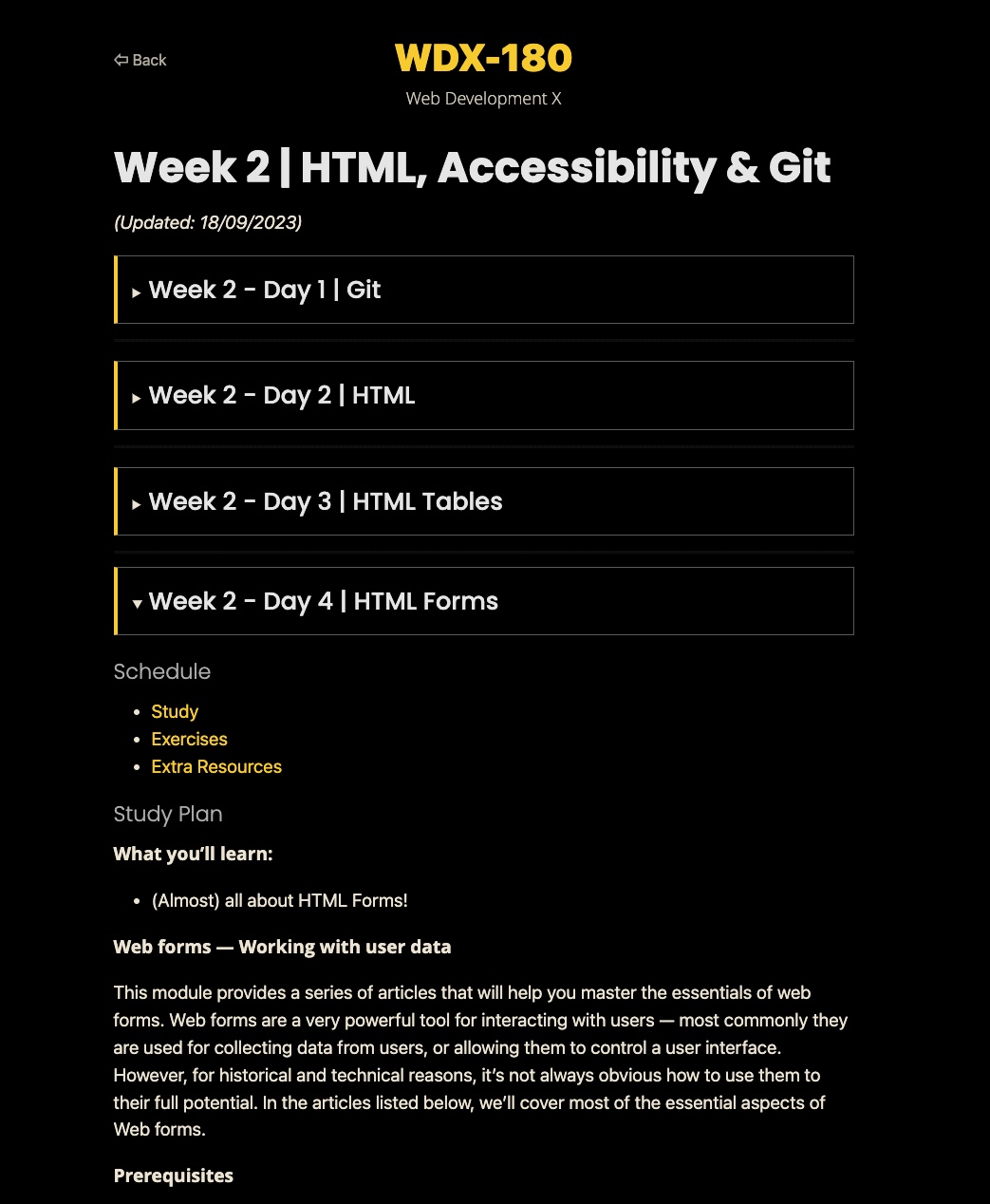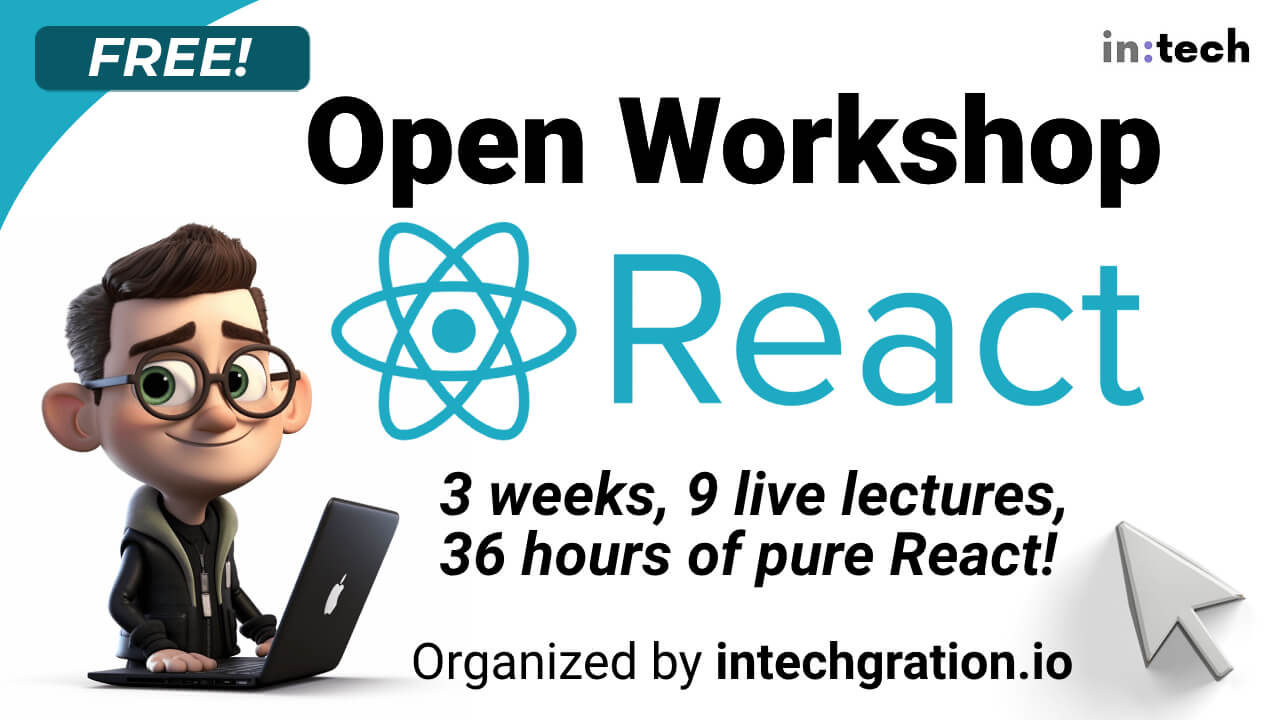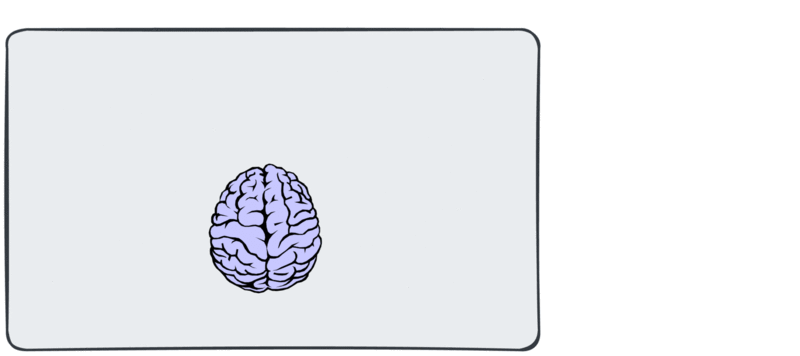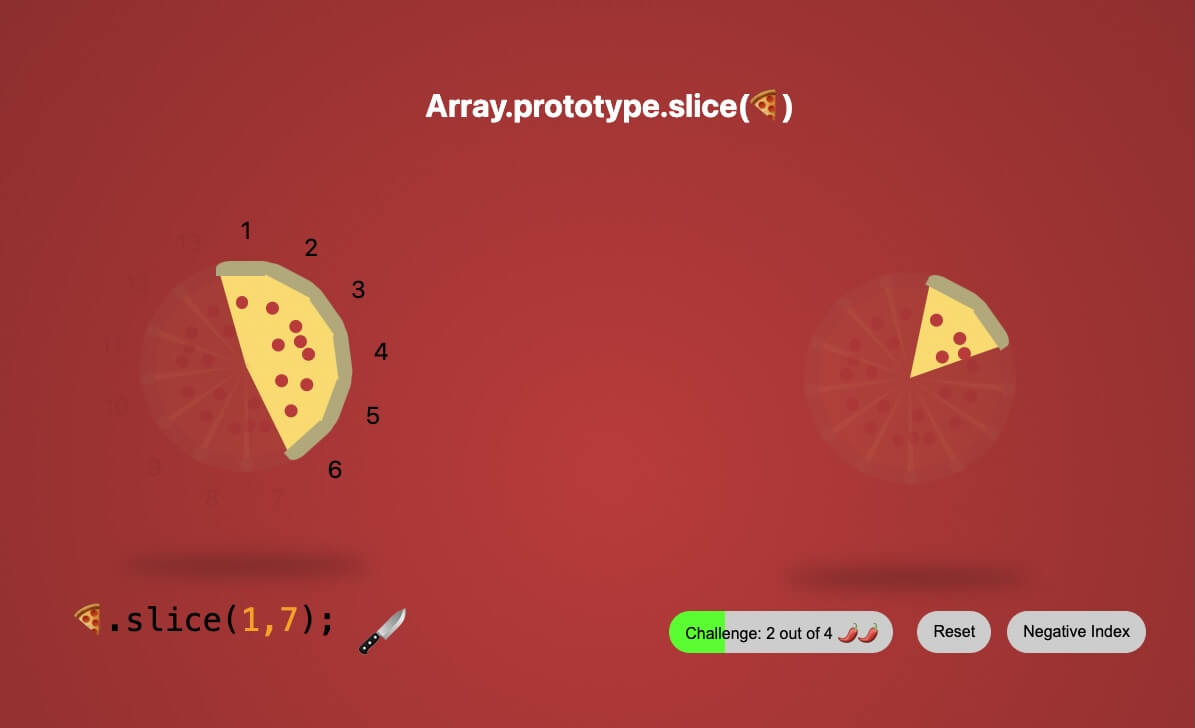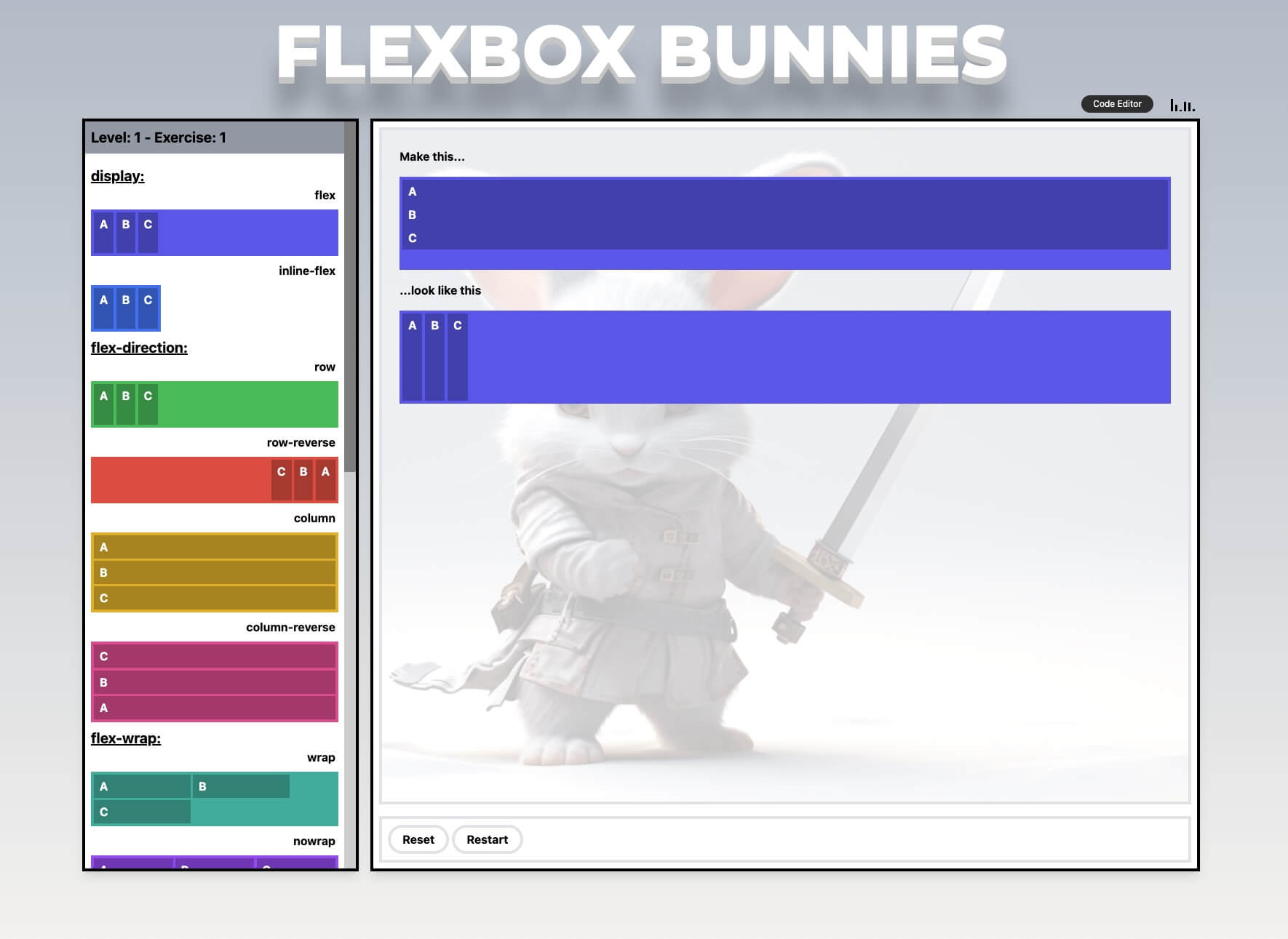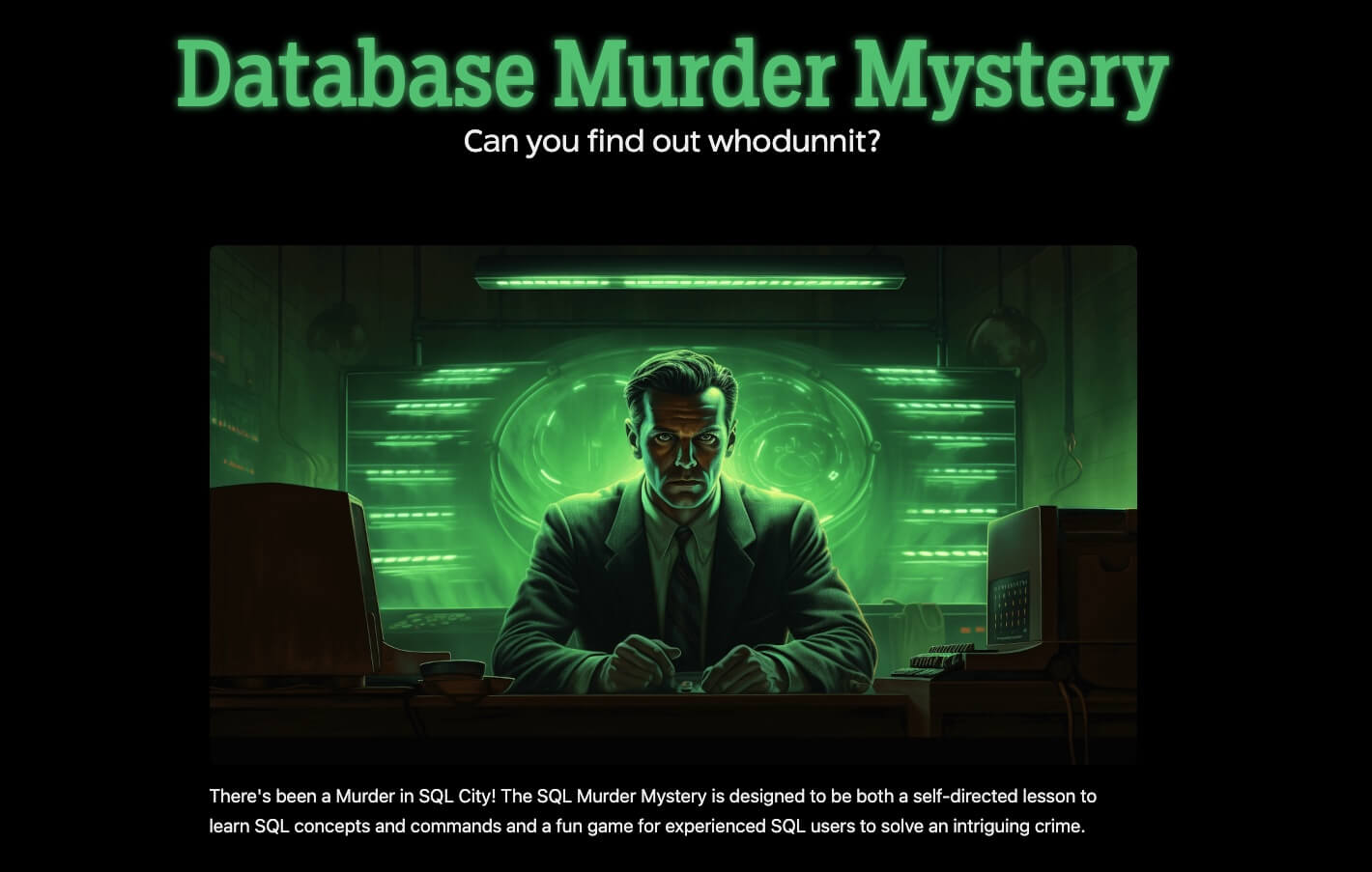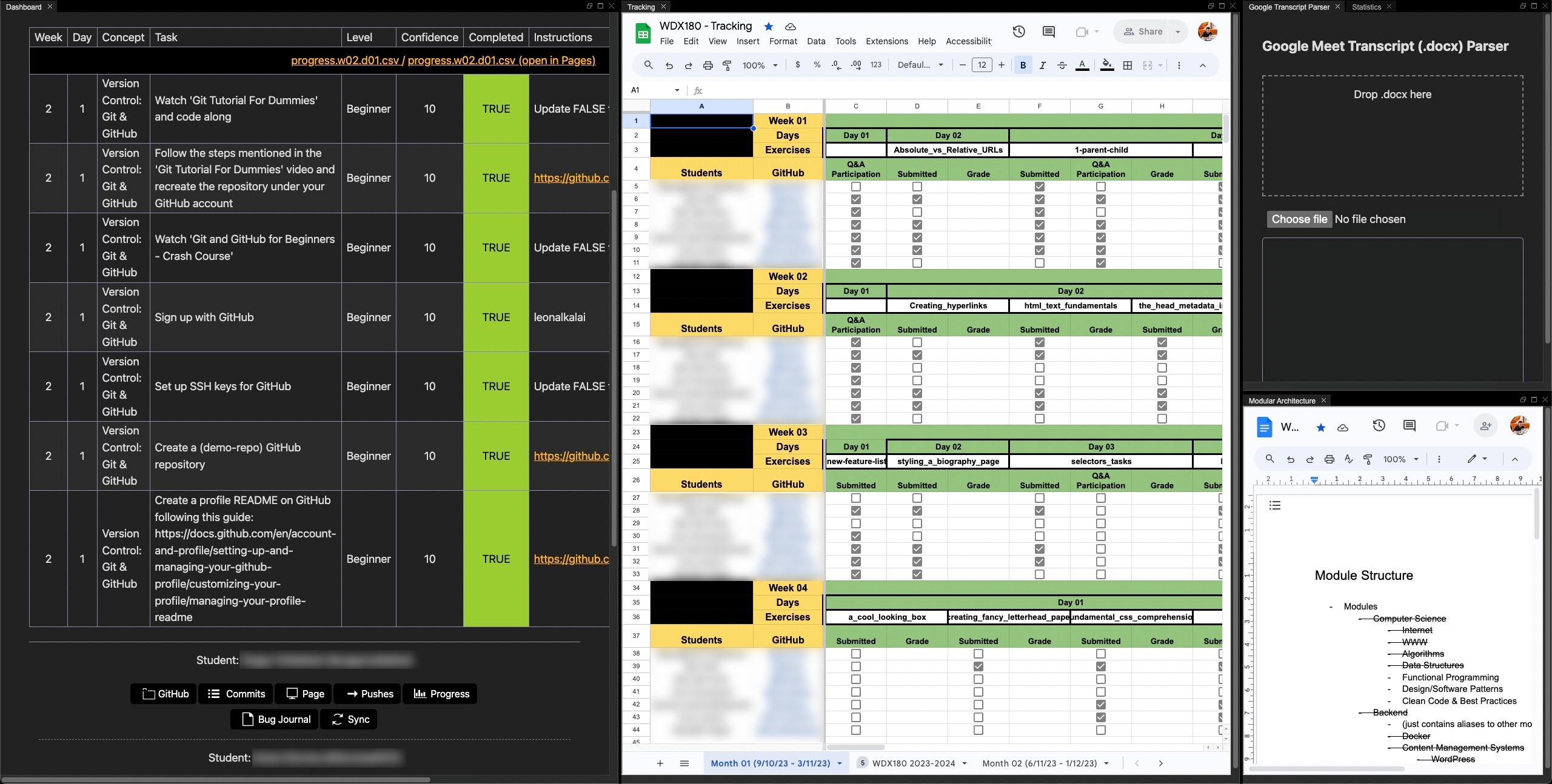Annual Activity Report 2023-2024
July 2023 - July 2024
Prepared by Kostas Minaidis | Last updated: 15.09.2024
About us (How it all started...)
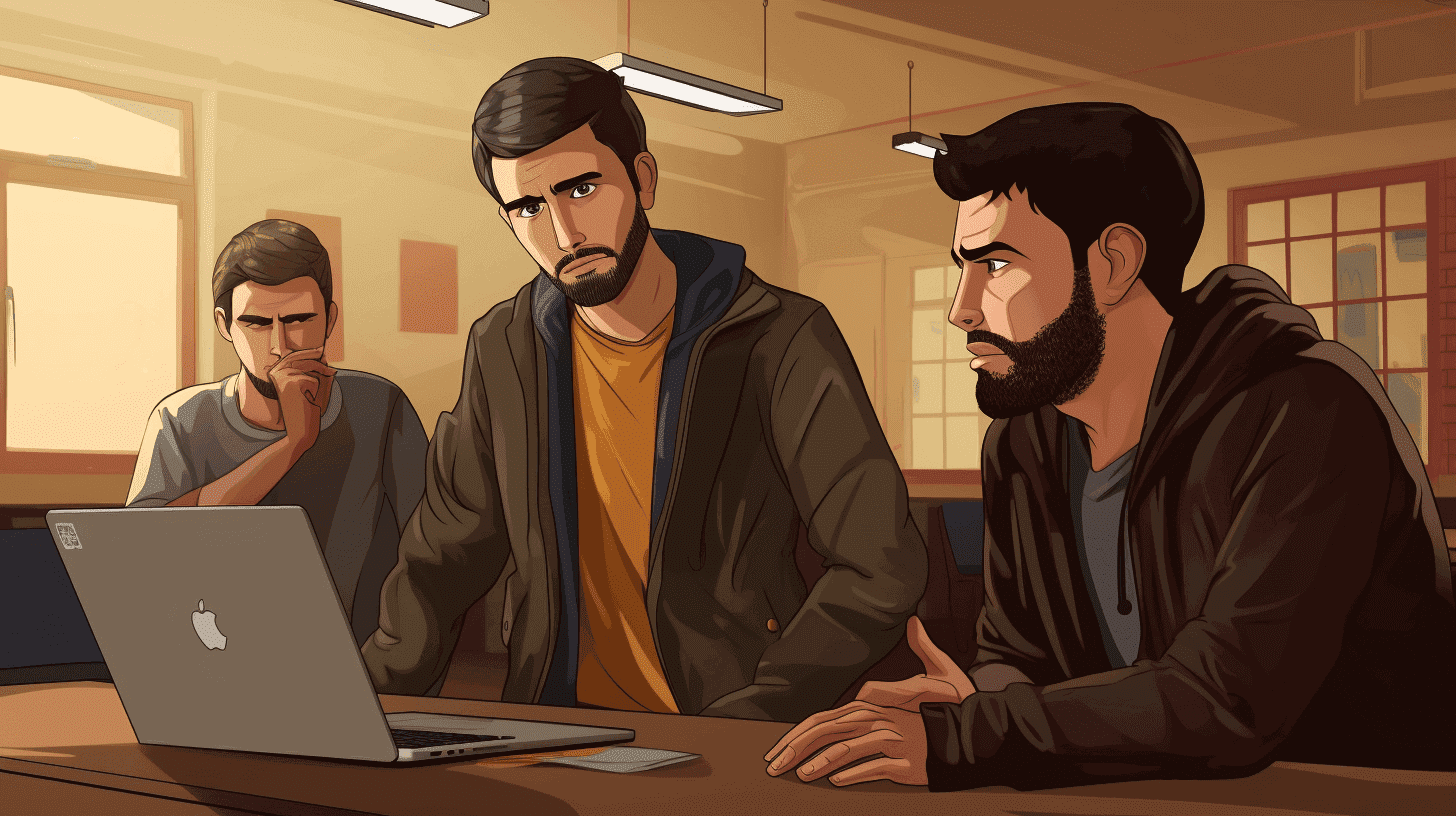
It all started when Abed Hamami and Sohail Haqyar decided to start a free coding school for refugees in Athens, Greece. Both of them, self-taught software developers and refugees from war-torn Syria and Afghanistan respectively, decided to take their software skills and working experience to the next humanitarian level and set up a small evening class for people who wanted to take a chance on new promising careers in tech.
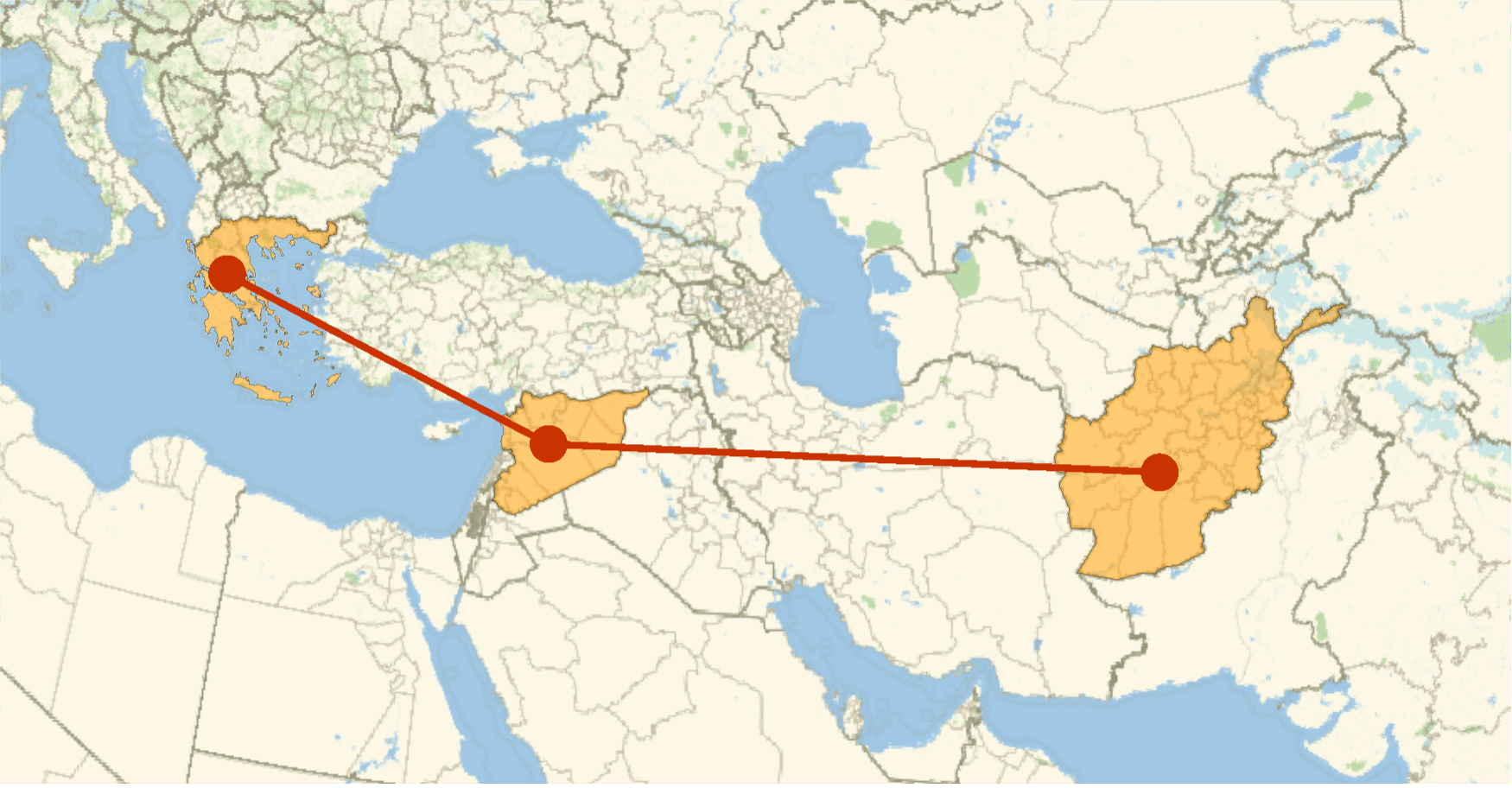
Together with a group of motivated and passionate volunteers who responded to their call for action, they came up with the idea of helping people who belong to socially vulnerable groups, by acquiring the software skills in high demand by the job market. These include web technologies such as HTML, CSS, JavaScript, React and other.
Then, EchoHub Athens, a non-profit organization situated in Kypseli –one of Athens' crowdest and poorest neighborhoods– came along and responded to their call and decided to freely provide the necessary space, hardware and Internet access for the lessons to take place.
Thus, intechgration.io was born!

From 2022 to 2023, the team of intechgration.io ran 2 cohorts of students and guided them through the fascinating world of Web development, sharing the skills and expertise required to build and develop web sites and web applications thus opening the way to getting hired by tech companies that are in high need for such skills.
In June 2023, Kostas Minaidis, a long-time volunteer and tech instructor joined the team as a full-time course instructor and content creator. At that point, a new turn for the project was taken and things started evolving at a faster, more serious pace. The idea was to create a free, open-source educational platform and web development curriculum from the grounds up. This was the beginning of the WDX-180° project.
What is WDX-180°?
Running a coding school is a pretty challenging task to say the least. Previous experience has shown that a thoroughly planned, peer-reviewed and well-structured curriculum needs to be at the core of the learning experience. On top of that, students need to have a central point of reference: an educational platform that will provide all the necessary material and required tools for guiding them through their learning journey while at the same time giving them a consistent user experience. Think of the experience one gets when enrolling in a course on Coursera, Udacity or Edx platforms.
Out of these requirements and needs, we decided to create the WDX project.
Here are some of its aspects:
-
A free and open source Web Development curriculum and platform that will always be free
-
A set of tools that help mentors, volunteers and instructors manage students and have a general overview of the learning process. This same set of tools will also help people who decide to follow the course as individuals and at their own pace.
-
An offline-ready school-in-a-repo*. Everything a student or teacher needs can be copied and run locally on a student's computer. This means a student can watch lectures offline and even develop web applications in a local networked environment without Internet access. (Check the “School-in-a-repo” sub-section under “What are we planning for 2024-2025?” section below for more on the topic)
-
A method of progressive learning, providing the students with a way to discover Frontend development in its entirety, including web languages, command line skills, collaborative working, project management and more.
*A repository, or repo for short, is just a project folder that includes a way of tracking changes and providing a history of these changes. Think of the undo/redo feature found in most applications but for any folder on your system.
Taking In:techgration to the next level
On another level, the team decided to pivot from the initial target groups (refugees, immigrants) towards more inclusive goals. Starting from our third cohort (October 2023) we decided to open up the doors towards tech skills and market integration to people with disabilities and in general we want to support and educate people from all sorts of underserved social groups. We’re thinking of people affected by the justice system, people with a history of substance abuse, victims of domestic violence, single parents, unemployed people and more.
In September 2023, Asteris Giannoudis joined the team as an accessibility consultant, developer and teaching assistant. We started working towards making our content and platform more accessible and reaching out to people and groups that work with disabilities and invite them to participate.
How does Teaching/Learning work at In:techgration?
Teaching relies mostly on volunteer mentors that support the students through regular lectures, meetings and presence on our Slack community forum. There’s also a dedicated lead instructor for day to day activities and lectures but we try to reach out to as many volunteers as possible, since the tasks of the lead instructor are pretty heavy.
Learning relies heavily on students forming groups and pairs and collaborating on the daily tasks and various projects.
Online group meetings where students meet and tackle challenges together are also encouraged.
The students are following the curriculum through the WDX180 platform which contains the syllabus and provides the learning material and resources, interactive tools and exercises and everything that they need in their journey to become familiar with Web technologies and computing.
The WDX180 curriculum is split into 3 parts (trimesters): Beginner, Intermediate and Advanced.
Our Core Principles
- Free (as in freedom but also as in cost-free) and Open Source Software
- Open Education
- Social Responsibility
- Promote Ethical and Responsible use of Computer Technology
- Accessibility
- Inclusivity
- Diversity
We stand against any kind of gender, race or religious discrimination.
Our Activity
(*with 0€ budget and 2 staff members available)
- Recreated our Web Development course from scratch: We turned what was in the past a part-time evening activity into a full-blown 9-month, weekly course. We moved from part-time volunteers to a fully-dedicated instructor for our cohort. Our new course is called Web Development X - 180 (or WDX180 for short). The course is available for free as a website hosted on GitHub pages. There’s an open Discussion forum over here and a list of tasks right here.
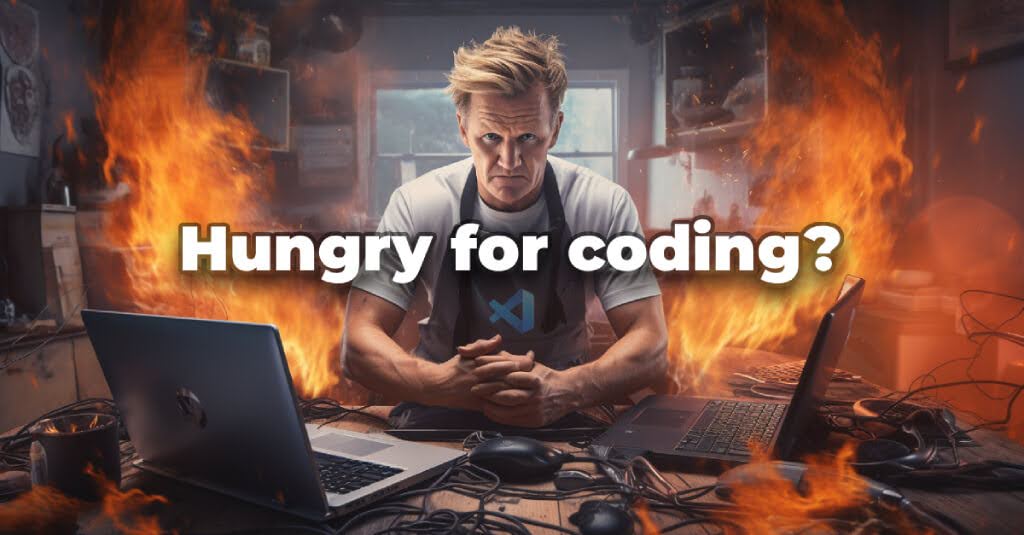
- Our 3rd (and first one to take the 9-month WDX180) cohort graduated! You can check out the celebratory online gathering after the completion of the 1st trimester and also the graduation. This group of students enrolled to our WDX180 course on October the 2nd of 2023.
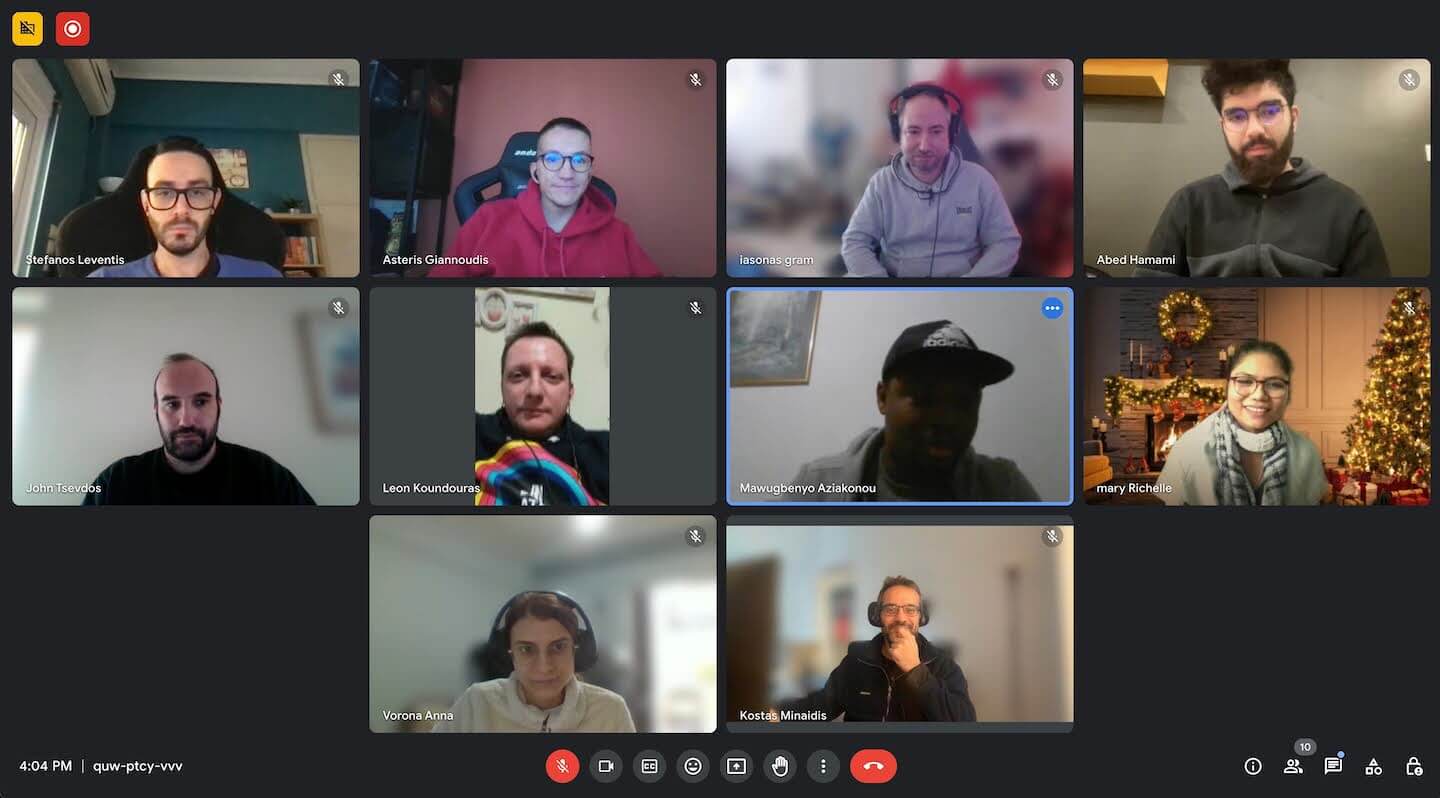
-
Created a brand new website (based on NextJS).
-
Organized a free 3-week open workshop for React.js (and we are planning of organizing more of that in the upcoming months).
-
Content Creation: Recorded over 280 videos, totalling almost more than 260 hours of free YouTube educational material. From learning what an API is to becoming familiar with CSS Flexbox and VSCode all the way to video editing. Here is a breakdown of all this material:
-
Flappy Bird tutorial and YouTube Playlist: We created the Flappy Bird to guide beginners through the process of implementing a web page based on a design (mockup) from scratch. The guide is accompanied by 17 videos totalling 3 hours of code walkthrough.
-
Video Editing with DaVinci Resolve YouTube Playlist: 2 videos, 17 minutes
-
Real-life coding: 5 videos, 4 hours of recorded material
-
Web Development with VSCode YouTube Playlist: 5 videos, 17 minutes
-
WDX180 live sessions and tutorials YouTube Playlist: 22 videos, 14 hours and 46 minutes. This list will keep growing as we are in the process of editing the recorded lectures and adding them to this list.
-
LLM Compendium YouTube Playlist: We created and maintain the LLM Compendium, a YouTube playlist that provides short videos that explain topics related to AI, Machine Learning and Large Language Models.
- We also held 161 private live sessions with our students totalling almost 262 hours, with topics ranging from
Version ControltoWeb Accessibility(which along with Computer Ethics is part of our core principles). These sessions have been recorded and are available for internal use (e.g. shared with other students taking the course) and will become publicly available once they have been properly video edited to respect the privacy of the participants and trim out the awkward parts.
-
-
We’ve partnered with the DeNepo team and started integrating their open source material and tools (check study-lenses) into our WDX course. We started collaborating with Evan Cole, Tamer Almurshidi and Yoshi Malaise, all of which have been supporting us right from the beginning ❤️. At least two repositories from DeNepo have already been integrated into WDX180 and are maintained by the community: welcome-to-javascript and inside-javascript.
- Developed JavaScript Animated, a visual, interactive guide to JavaScript array methods. In the future, we hope to provide more interactive and animated guides to all things JavaScript. You can find the source code on GitHub. The interactive guide also contains a mini game called Pizza Slice for practicing the
sliceJavaScript method on Arrays!
- Flexbox Bunnies: We are developing
Learn Flexbox(akaFlexbox Bunnies) which is an interactive game to help beginners in Frontend development learn all about the CSS Flexbox properties. The project's source code is open on GitHub.
- We integrated a Murder Mystery game for learning how to work with Databases. We forked the SQL Murder Mystery game and turned it into an atmospheric mystery game with music, visuals and a darker style. The goal of Database Murder Mystery is to turn it into a gamified educational experience, through which students will learn about relational and NoSQL databases. We are in the process of creating a NoSQL version of the game, so feel free to reach out to us if you are interested in contributing to the project.
-
Open-source contributions:
- Rainbow CSV (VSCode Extension): Accessibility improvements. As part of our instructor/student toolkit, we use the Rainbow CSV VSCode extension to extensively work with CSV files. We created a Pull Request with some accessibility improvements to the User Interface. The PR was accepted, merged and is now part of the extension that counts more than 8 million downloads!
- LangChain.js: various PRs were merged (#1, #2, #3).
- Created a GitHub repository containing the code from Tejas Kumar’s Redux from Scratch YouTube tutorial.
- Since our curriculum is based around the MDN docs, we are constantly providing feedback and revising their content through frequent Pull Requests.
- We are frequent contributors to platforms that help other developers understand programming concepts, fix bugs and solve code-related challenges like StackOverflow and CodeGrepper.
- DeNepo curriculum & tools: we have already forked and integrated several repositories from the DeNepo organization into our curriculum and platform and we are constantly revising and improving the content. We have also started working on an improved version of the study-lenses educational tool.
-
The great folks over at js.org have approved our learn.js.org subdomain which is now hosting a list of resources related to learning JavaScript!
-
The intechgration.io community is now the official maintainer of the FFMpeg Snippets repository dedicated to this great CLI tool.
-
Research and Development: we’ve been really busy researching and developing a multitude of tools, services and software that helps the team and the students thrive. Here are some highlights:
- We are developing a toolset called DreamX whose main purpose is to let anyone create an open source curriculum from scratch or create their own version of the WDX180 curriculum to fit their own needs and style, e.g. turn it from a 9-month course to a 6-month course, etc.
- We have been working on a project called Training Wheels for Programmers (aka NewbieScript) that includes a series of tools, tips, recommended practices and code libraries, specifically oriented for beginners in Web development. Think of training wheels for programmers. You can follow our progress through our GitHub repository. Stay tuned for the updates.
Our Technology
(This section is intended mainly for tech people and software developers who would like to know more about the technical details and the technologies involved in the project)
NOTE: Some of the tools mentioned in this section are still under heavy development or are work in progress.
-
WDX180: A free, open-source online platform for learning Web Development. Some tools that we have developed and/or integrated include:
- WDX Extension Pack: A VSCode Extension that helps students attending the WDX180 course get started with many useful extensions and tools. We have also created another VSCode extension, specifically for developers working on the WDX course.
- Instructor Cockpit: A tool that helps instructors track their students’ progress and GitHub activity among other things.
- An integrated browser-based Linux VM (Virtual Machine) for teaching command line tools on Linux-based environments.
- A specialized user folder where students can submit their exercises and have automated tests run upon submission (through GitHub actions). This helps our students get immediate feedback on their submitted code.
- A Markdown validator tool which helps content creators and curators compile documents that are ready for integrating into the curriculum.
- Our own custom yari parser X tool for integrating content from MDN.
- A tool for managing and searching through our curated content and resources.
- All of the reviewed content (YouTube videos, articles, tutorials, etc.) is stored in a schema-validated JSON structure. This is the first step into making this content searchable and filterable through an integrated search engine (work in progress) and also make it easy for contributors to submit properly-structured resources.
- Our ambition is to turn WDX180 into an open-source LMS (Learning Management System).
-
A Chrome Extension for quickly accessing common links and resources.
-
KipTrak: A tool for tracking students' progress. In the process, we started recording and sharing this real-life development process through a dedicated YouTube Playlist called “Real-life coding”. You can find the source code on GitHub. You can find more about the development of the project (and also contribute) through our GitHub Project.
-
sgen (Syllabus GENerator): a Syllabus Generation tool. This tool is used to generate the Syllabus and curriculum for the WDX180 course but the intention is to be able to use the tool in any kind of educational context. The tool helps you build a website from simple plain text Markdown files and are easily configurable through YAML configuration files.
-
study-lenses (v2): We integrated and improved this great tool that helps beginners see the code in many different ways. Study lenses adds new perspectives and layers of interactivity on top of existing code, making it a great tool for educators and students. Just copy and paste any existing JavaScript code, and the tool instantly provides various ways to see and experiment with the code.
(Screenshot: the Instructor Cockpit tool, that allows mentors and instructors to track student progress, organize their schedule and more.)
What are we planning for 2024-2025?
-
We are going to guide our 4th cohort through the Web Development X 180 course.
-
We are planning to live-stream all of our lectures, activities and coding sessions. (We already opened our React weeks to the public)
-
We are going to organize guest lectures, webinars and workshops covering a wide variety of topics related to computer science, software development, online privacy and security and video editing.
-
Continue improving our content and educational platform and our progress with the project that are under development.
-
Create educational content on YouTube and on our platform.
-
Mentor and support our students. Give guest lectures.
-
Review and/or translate our content to other languages.
-
We are planning to share our experience, tools, tips and insights with the educational and open-source community and everyone who is interested in teaching Computer Science, Software Engineering and Web Development. We’ve already established a home for these resources, stay tuned. This repository will also include tips and recommended practices for anyone willing to teach the WDX180 course.
-
We are planning to collaborate with similar projects, for example we are currently in communication with Sistech and are looking forward to joining forces with other socially-centered tech-related initiatives.

- Project School-in-a-repo (or
education-on-a-USB-stick, we still haven’t decided on a name): provides full offline access to developer resources such as the Mozilla Developer Network documentation pages, StackOverflow and other useful resources that are commonly accessed through the Internet along with all the required material (curriculum, articles, exercises, self-assessment tools and more). On top of these resources, we intend to provide a tiny simulated Internet environment on the students’ computers so that they can keep experimenting with web technologies, even without Internet access. This environment will include its own Domain Name System (DNS), Content Delivery Network (CDN) for common CSS and JS libraries (e.g. Tailwind, jQuery, Bootstrap, etc.) an offline local npm repository and more. This will make WDX the perfect educational platform for places with unstable or costly Internet connection, or even places without Internet connection at all such as prisons. (For more on this, you can read the stories of Jessica Hicklin, Rick Wolter and Jason Jones -among others- that inspired us.
Our Goals & Dreams
-
Make WDX180 one of the best free educational platforms in the world.
-
Make sure that people with limited or no Internet access can still follow our course while offline.
-
Let people teach WDX180 anywhere in the world.
-
Keep creating quality educational content.
-
Keep Developing tools, services and games that help people learn.
-
Provide education and new career opportunities for people that belong to underserved and vulnerable social groups.
How can you support us?
-
We are open to collaboration with organizations and teams that would like to use our educational platform (WDX180) and our community platform (Slack) to run web development courses and organize workshops related to technology.
-
You can hire us to give lectures, organize workshops and empower teams.
-
Subscribe to our YouTube channel and like the videos that you found helpful. Leave your comments and constructive feedback.
-
Follow us on Twitter
-
Star our open-source repositories on GitHub or open a Pull-Request and contribute.
-
Become an active participant of the intechgration community (join our Slack forum or send us an email to learn more).
-
Help us with video editing on our recorded material and educational content.
-
Share our work and posts with the world through Social Media.
-
Looking forward to hearing your suggestions and ideas!
-
You can donate or provide financial support. Here are some of the services and tools we pay to maintain our school and day-to-day activities:
- Domain name (intechgration.io): ~$120/year
- Midjourney (for our illustrations): $148/year
- Synthesia.ai (for generating digital avatars for our educational videos): €240/year
- Google Meet: A premium account is needed for high-resolution recordings without a time limit. Right now it’s generously provided by PlethoraThemes.
-
Here are some other things we would like to afford:
- YouTube Premium: around $100/year for ad-free premium video services for our recordings, streaming and other video-related content management needs.
- Google Workspace: around $300/year, for having access to the Business Plan that will allow us to record our meetings and store large amounts of data on the Cloud among other things.
- Professional microphones and web cameras for enhancing the quality of our videos and live sessions.
- Employ part-time and/or full-time developers and educators to expand our services, support evening classes and accelerate the development process of our open source tools and curriculum.
A big thanks to the organizations and people that are supporting us in this journey. We are extremely grateful.
